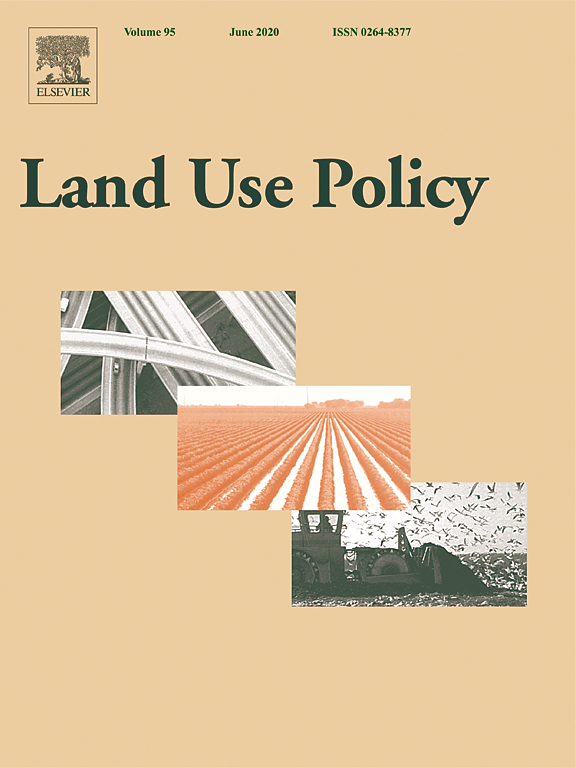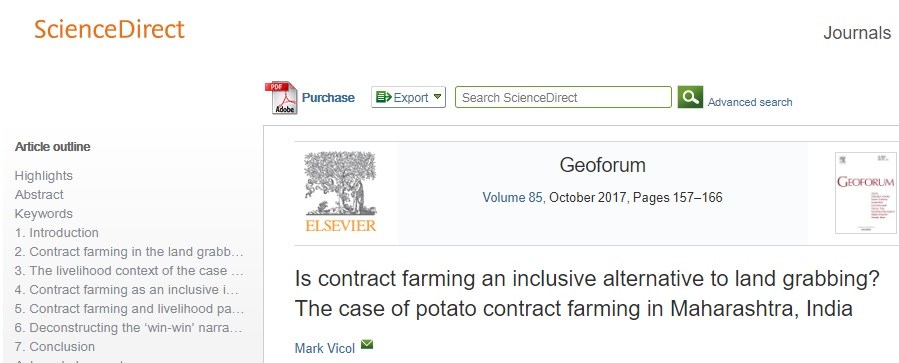Location
What is ScienceDirect
Elsevier’s leading platform of peer-reviewed scholarly literature.
University libraries and institutions offer ScienceDirect access to their communities of researchers.
Researchers, teachers, students, healthcare and information professionals use ScienceDirect to improve the way they search, discover, read, understand and share scholarly research.
Members:
Resources
Displaying 201 - 205 of 284Convergence of Romanian and Europe Union agriculture – evolution and prospective assessment
This paper presents forecasts related to the evolution of agricultural production in Romania, relative to the European Union average and to other countries (France, Germany, and Hungary) while taking into consideration the production potential of Romanian agriculture and opportunities to mobilize certain additional financial sources intended for the growth of intermediate consumption and implicitly of the value of agricultural production.
Farmers’ perception of effective drought policy implementation: A case study of 2009–2010 drought in Yunnan province, China
Using a qualitative social research method at the local administrative level, this paper provides insight into the policy process in China and farmers’ perceptions of the effectiveness of policies implemented to deal with drought. Two villages in rural South-West Yunnan were purposefully selected for the study. The research started with the general assumption that China has a strong top-down hierarchal approach to policy processes and that funding dispersal is prioritised by the central government.
Is contract farming an inclusive alternative to land grabbing? The case of potato contract farming in Maharashtra, India
In the recent explosion of attention given to the land grabbing phenomenon, contract farming has been identified as a potentially inclusive alternative for smallholders to outright acquisition of farm land by agri-business capital. This paper responds to these claims by resituating contract farming as an equally important form of land control. The focus of the paper is a case study of potato contract farming in Maharashtra
Design of a decision support tool for visualising E. coli risk on agricultural land using a stakeholder-driven approach
Enabling knowledge exchange between scientists and decision-makers is becoming increasingly necessary to promote the development of effective decision-support tools (DSTs) for environmental management. Participation of stakeholders in the design process beyond a basic level of consultation is essential for promoting trust in modelled outputs and accelerating eventual uptake of resulting tools and models by end-user communities. This study outlines the development of a DST to visualise and communicate the spatial and temporal patterns of E.
Sustainable recommendation domains for scaling agricultural technologies in Tanzania
Low adoption of sustainable intensification technologies hinders achievement of their potential impacts on increasing agricultural productivity. Proper targeting of locations to scale-out particular technologies is a key determinant of the rate of adoption. Targeting locations with similar biophysical and socio-economic characteristics significantly increases the probability of adoption. Areas with similar biophysical and socio-economic characteristics are referred to as recommendation domains (RDs).




